Can You Sue the City for Injuries on Public Transportation
Can you sue the city if you are injured while using public transportation?
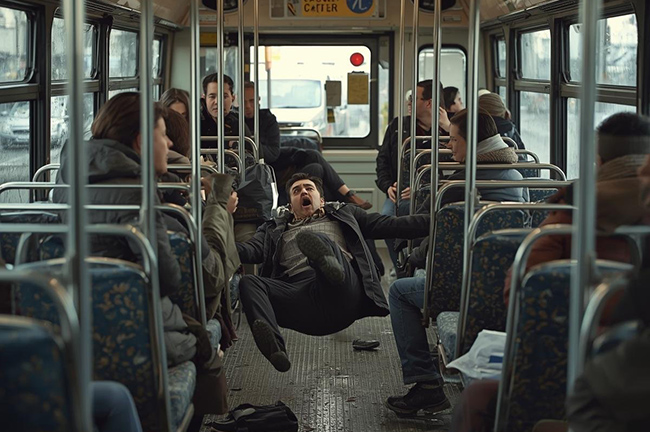
Relying on public transportation in New Mexico is a practical and often necessary way to get around. However, when a routine trip turns into an injury, it raises an important question: Can you sue the city if you are injured while using public transportation?
When Public Transportation Becomes Unsafe
Each year, thousands of people in New Mexico use public transportation services provided by the city, including buses and light rail systems. While these services are generally safe, accidents do happen. According to the New Mexico Department of Transportation, in 2022 there were over 1,200 incidents reported related to public transportation statewide, many of which resulted in injuries.
These accidents can happen in a variety of ways:
Slips and Falls: Whether boarding a bus or waiting at a station, slippery floors, broken steps, and inadequate lighting can lead to dangerous falls.
Collisions: City buses or light rail vehicles may collide with other vehicles, causing injuries to passengers on board.
Sudden Stops or Mechanical Failures: Unexpected stops or malfunctions can throw passengers off balance, leading to serious injuries.
Criminal Acts: Assaults or other crimes that occur during transit can leave passengers physically or emotionally injured.
When such incidents happen, the first instinct is often to wonder whether the city can be held responsible.
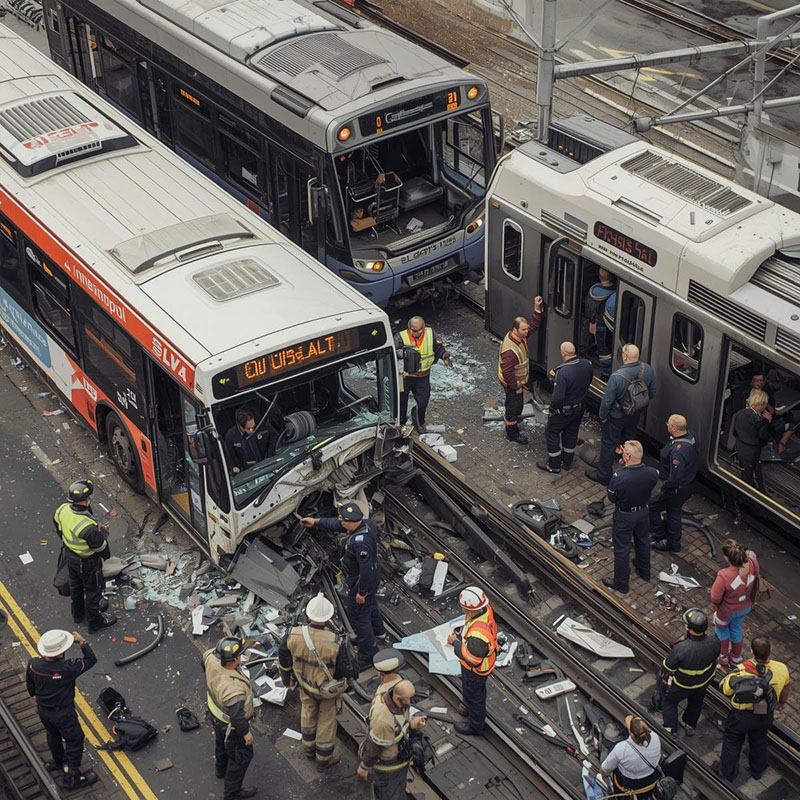
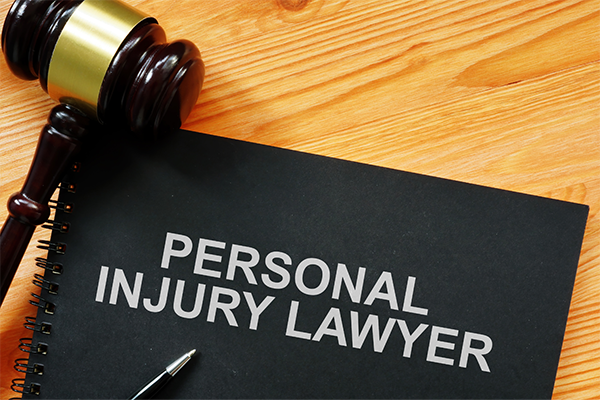
How the Law Works in New Mexico
In New Mexico, cities and other public entities are protected by sovereign immunity. This legal doctrine prevents most lawsuits against government entities, as they cannot be sued without their consent. Sovereign immunity exists to protect public agencies from excessive litigation, allowing them to operate effectively without being bogged down by every accident.
However, the New Mexico Tort Claims Act (NMTCA) creates important exceptions. It allows individuals to file claims when the injury resulted from the city’s negligence in performing ministerial duties, rather than personal judgment or policy decisions.
When Sovereign Immunity Does Not Apply
Sovereign immunity does not shield the city if:
- There was a clear duty of care owed to the public.
- The city failed to maintain safe transit conditions.
- The injury was directly caused by defective equipment, unsafe conditions, or failure to warn of hazards.
Real-World Examples of Public Transportation Injuries
- A passenger boarding a bus in Albuquerque slipped on a wet floor where no warning signs were posted, resulting in a broken wrist.
- A mechanical failure caused a bus to stop abruptly, throwing a standing passenger into a metal handrail, causing head trauma.
- Poorly maintained steps led to a fall, leaving a commuter with a permanent leg injury.
Understanding this distinction is critical. Filing a public transportation injury claim without knowing when sovereign immunity applies will likely result in the case being dismissed.
Why Immediate Action Matters
If you are injured while using public transportation, the steps you take immediately after the accident can impact the outcome of your case:
Seek Medical Attention First: Your health should always come first. Ensure you receive a full medical evaluation and keep detailed records of your diagnosis and treatment.
Report the Incident: Report the injury to the bus driver or station authority and obtain an official incident report. If possible, take photos of the hazardous conditions.
Collect Witness Information: Obtain contact information from any witnesses who saw the accident occur.
Submit a Notice of Claim: The New Mexico Tort Claims Act requires a Notice of Claim to be submitted within 90 days of the incident. This document must describe the injury, location, date, and how the city’s negligence contributed to it. Missing this deadline typically forfeits your right to pursue compensation.
At the Raymon Law Group, we specialize in handling these complex claims throughout Albuquerque and New Mexico. Our team ensures every detail is managed correctly, from filing the notice to gathering the necessary evidence and expert testimony.
What Compensation Can You Expect?
When a public transportation injury claim is successful, you may be entitled to various forms of compensation, including:
Medical Expenses: Coverage for past, present, and future medical costs related to your injury.
Lost Wages: Reimbursement for time off work and diminished earning capacity.
Pain and Suffering: Compensation for physical pain and emotional distress.
Permanent Disability: If the injury results in long-term disability, additional compensation is possible.
Wrongful Death: In the tragic event that a fatality occurs due to city negligence, family members may be entitled to significant compensation.
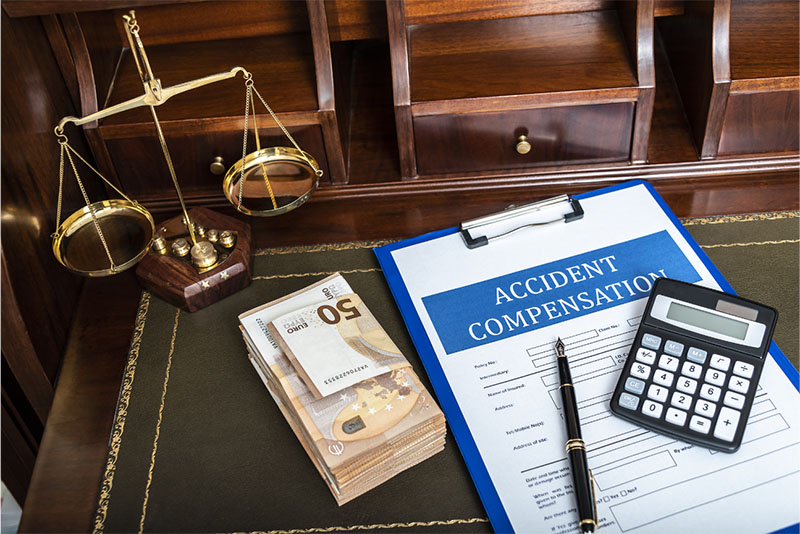
The Challenges of Suing the City
Suing the city involves hurdles that don’t typically apply to standard personal injury claims:
- Sovereign Immunity Protection: Unless clear negligence in a ministerial duty is proven, the city remains protected.
- Strict Deadlines: The 90-day notice requirement is firm and must be followed precisely.
- Complex Legal Procedures: Government claims involve additional layers of bureaucracy and specific filing protocols.
- Burden of Proof: Proving the city’s negligence requires detailed evidence, expert witnesses, and accident reconstruction specialists.
This is why having a qualified public transportation injury lawyer is essential. At the Raymon Law Group, we take care of these complexities and aggressively represent our clients to hold the city accountable. We understand the strict rules of the New Mexico Tort Claims Act and handle every step, from filing the claim to gathering evidence. Our goal is to provide clear guidance and strong representation, so you don’t have to face this difficult situation alone. Call us at (505) 390-1040 for a free case evaluation.
Frequently Asked Questions
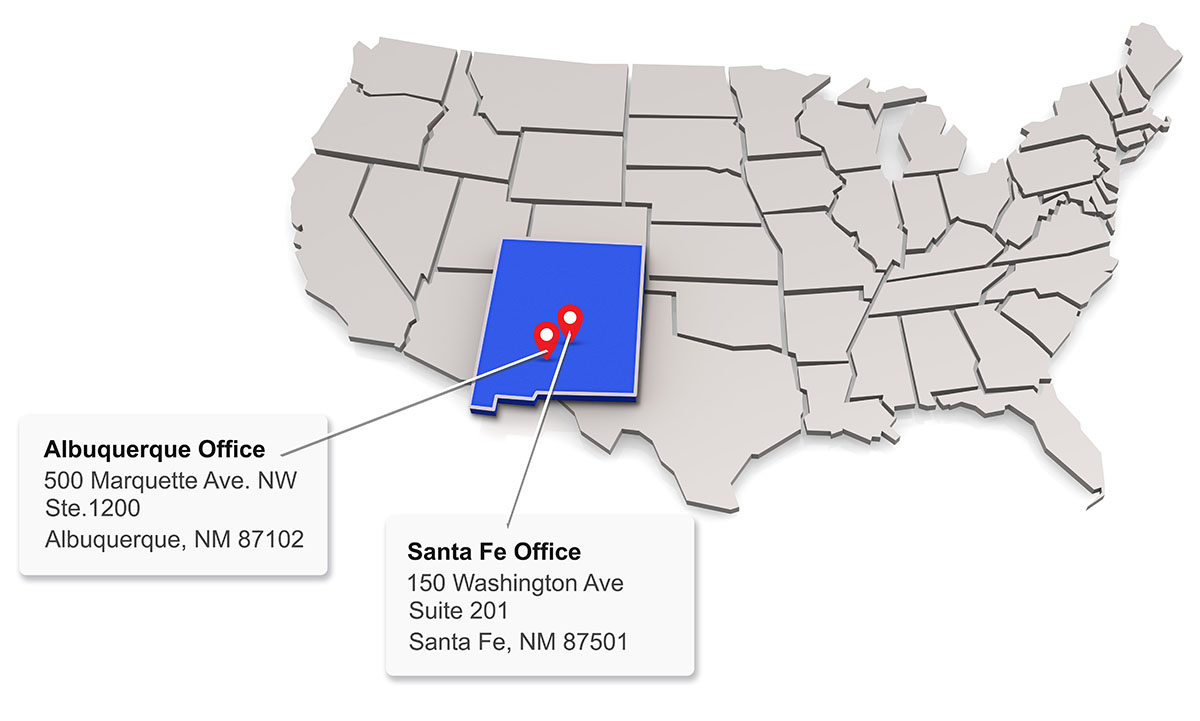
Location Served
We Represent
Individuals & Families
throughout New Mexico
Raymon Law Group’s Albuquerque personal injury lawyers are based at our main office in the heart of downtown Albuquerque at 500 Marquette Ave. NW, Ste. 1200.
We also have our Office at Santa Fe located at 150 Washington Ave, Suite 201. If you’re unable to visit us, our attorneys are happy to meet you at your home or hospital to discuss your case.


